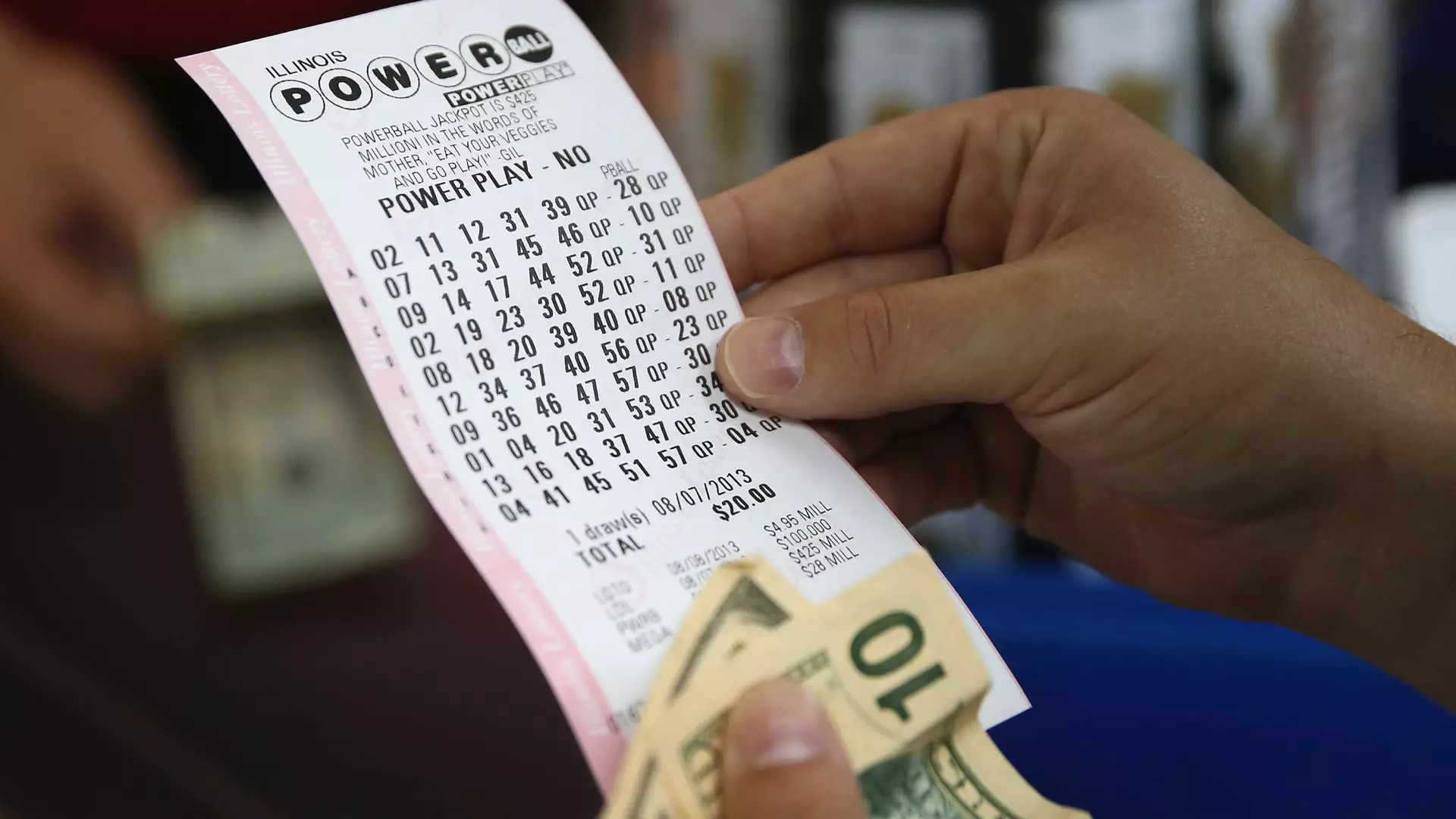When the allure of striking it rich through a lottery captivates the masses, it’s easy to dismiss the harsh realities hidden beneath the glittering promise of wealth. The recent Powerball jackpot, a staggering $1.787 billion, rekindles this age-old fantasy. Yet, behind the headlines and celebratory broadcasts lies a sobering truth: sudden wealth often leads to unforeseen turmoil. Most winners, seduced by the immediate cash option, ignore the long-term complexities that come with managing such fortune—inevitable tax burdens, financial mismanagement, and even personal destabilization. This phenomenon exposes a critical flaw in society’s misconception of wealth: it isn’t just about hitting the jackpot, but about understanding the responsibilities it entails.
The Illusion of Choice: Lump Sum vs. Annuity—A False Debate
The lottery offering a choice between a lump sum payout or an annuitized payment seems straightforward, but it entails deep pitfalls. Lottery winners are enticed by the immediate, hefty cash payout—approximately $410 million before taxes—yet few understand the nuanced implications of this decision. The allure of quick liquidity often blinds winners from contemplating the exceptional tax liabilities they face. The IRS mandates a 24% withholding at the outset, which immediately siphons off nearly $98 million of their windfall. Moreover, the allure of the annuity, which lasts over 30 years and grows by 5% annually, is often dismissed as “less immediate,” but in practice, it can be a safer route for those unprepared to handle such vast sums. The misconception that taking the lump sum is inherently better oversimplifies the financial wisdom necessary in managing wealth—something the typical lottery winner lacks.
The Tax Toll: A Hidden Cost That Can Crush Dreams
The complexity of taxation reveals how the winners’ inflated dreams are often tempered by an almost brutal fiscal reality. Regardless of the choice, recipients face a federal tax rate of at least 37%, a level that erodes hundreds of millions of dollars before it even touches their hands. When considering state taxes—more pertinent for residents of Missouri, which imposes a 4%–4.7% tax—additional reductions can diminish the pot further, turning millions into mere crumbs after the IRS and state authorities take their share. It exposes an uncomfortable truth: reaching into the winners’ pockets is often the government’s favorite pastime, stripping their winnings down to a fraction of what they initially believed they had won. This relentless tax burden questions the very mythology that surrounds lottery jackpots as “life-changing” opportunities—an illusion that often leaves winners worse off emotionally and financially.
The Reality Check: Wealth Isn’t Just Money, It’s Responsibility
Beyond the financial nuances, there lies a societal critique—why do we idolize lottery winners when such sudden wealth frequently corrupts rather than elevates? Society’s obsession with instant riches encourages a reckless pursuit of luck, overshadowing the importance of sustainable financial planning and personal discipline. The narrative often ignores that managing vast sums requires skill, experience, and a robust support system—none of which lottery winners typically possess. The risks include spiraling debts, broken relationships, and even legal troubles. Meanwhile, the cultural romance surrounding “luck” fuels inequality and perpetuates false hopes, distracting people from the more attainable goal of steady, responsible economic stability. It raises a question: should we continue to celebrate such problematic pathways to wealth, or should we focus on creating equitable, long-term economic opportunities instead?
Reevaluating Our Approach to Wealth and Lottery Culture
The lottery isn’t just a game of chance; it’s a mirror reflecting societal values. Our fixation on winning as a shortcut to happiness reveals a deeper craving for security and status that real, sustainable wealth can’t guarantee. Instead of encouraging this fleeting pursuit, society should channel resources into education, social mobility, and financial literacy—tools that empower individuals to build wealth through effort and infrastructure rather than luck. Public policymakers and community leaders must reconsider the glamourization of such jackpots and highlight the real costs involved, not to deter participation, but to promote realistic expectations and responsible decision-making. The allure of instant riches must be balanced with an understanding of the complexities and sacrifices it entails—lest we continue to trade fleeting dreams for lifelong regrets.

